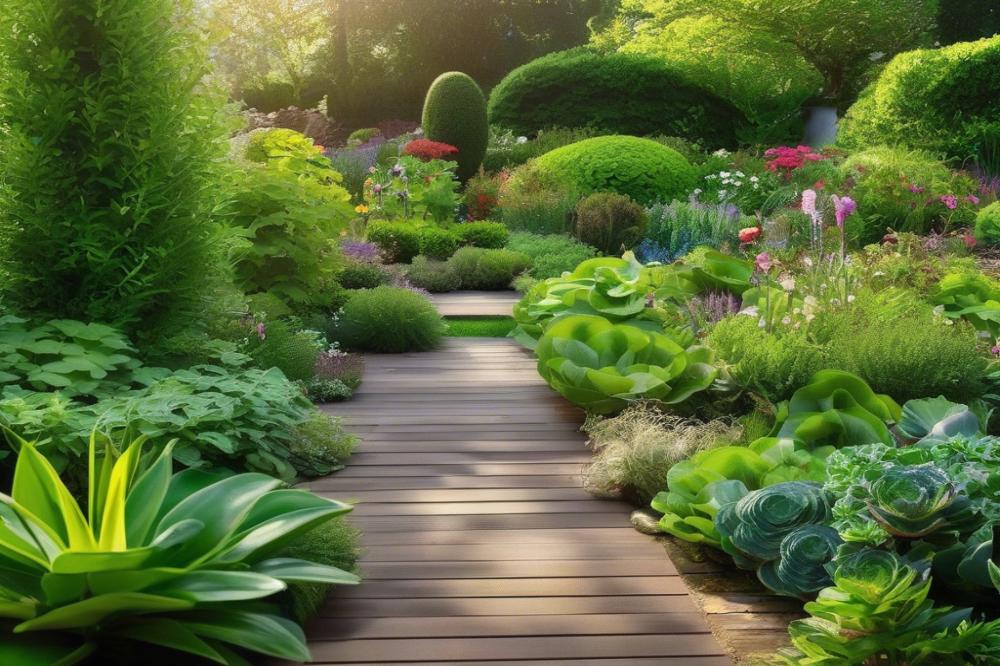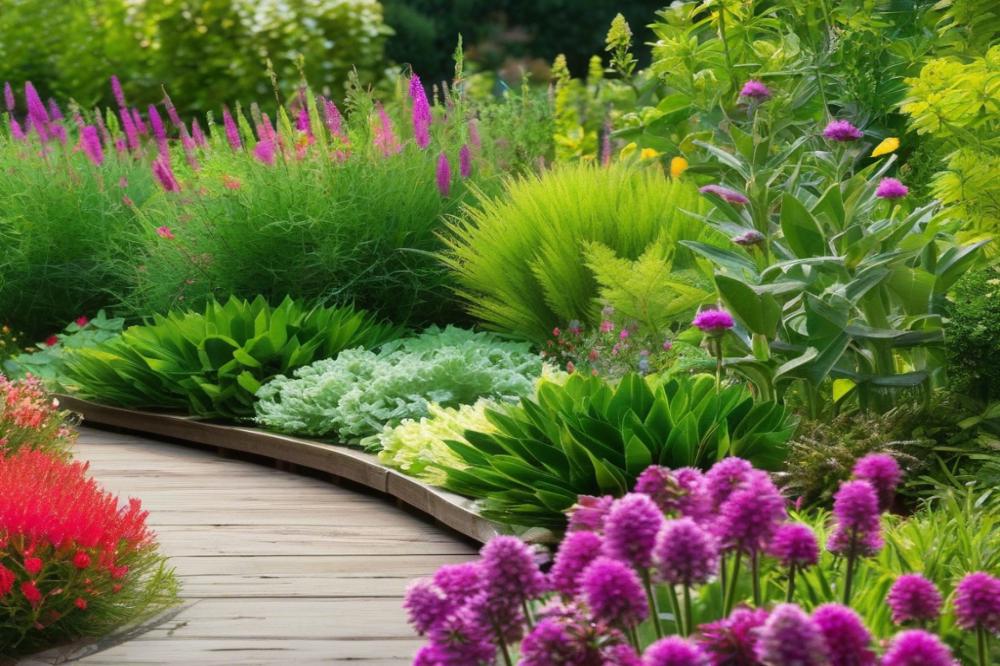How to Use Epsom Salt to Keep Slugs and Snails Away
Dealing with slugs and snails in gardens can be quite frustrating. These garden pests can ruin delicate plants and flowers overnight. Their slimy trails often leave marks that many gardeners find unsightly. Many of us spend a considerable amount of time nurturing our plants, only to see them damaged by these relentless creatures.
Seeking solutions, many turn to chemical pesticides that may harm the environment. However, the importance of natural remedies in pest control cannot be stressed enough. Eco-friendly solutions are gaining popularity among those committed to organic gardening. Using such methods helps protect not only the plants but also the surrounding ecosystem.
Epsom salt offers a unique approach to managing snail populations. This mineral compound has several Epsom salt uses beyond gardening, but many do not realize its effectiveness as a pest deterrent. Incorporating it into your slug control strategy can make a significant difference. It is an easy and affordable option for home gardening enthusiasts looking for effective ways to protect their plants.
Opting for Epsom salt for slugs provides a safer, non-toxic alternative. As a natural solution, it can help keep these resilient pests at bay while aligning with the principles of organic gardening. With the rise of sustainable practices, many gardeners are now exploring methods that not only work but also promote a healthier environment.
Understanding Slugs and Snails
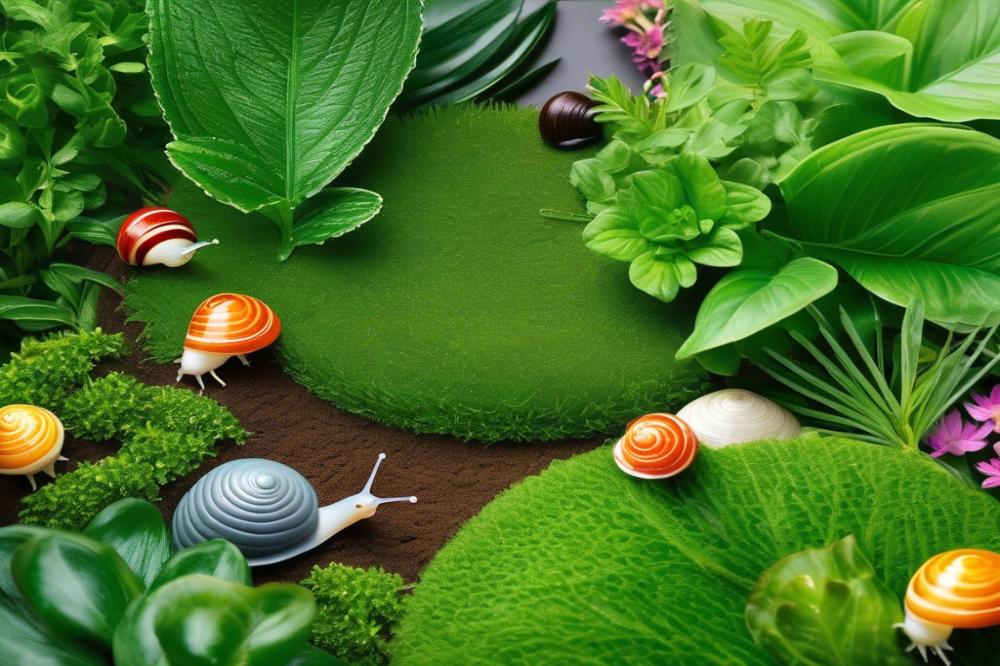

Slugs and snails are common visitors in home gardens. These garden pests are mollusks, characterized by their soft, slimy bodies. They lack a hard shell on their back, making them vulnerable and enabling their movement across various surfaces. Secretive by nature, they tend to emerge during the night, leaving behind a trail of slime that glistens in the moonlight. Their diet mostly consists of tender leaves, fruits, and vegetables, which can cause significant damage to your plants.
The impact of these creatures on the garden can be quite serious. They often feast on delicate seedlings and mature plants alike, causing leaves to appear ragged and unsightly. The consumption can lead to reduced crop yields and stunted plant growth. For both gardeners and farmers, these pests present a persistent challenge. Some may discover entire patches of lettuce or delicate herbs decimated overnight.
Organic gardening emphasizes the use of natural remedies to tackle such issues. Many gardeners are moving away from chemical pesticides due to harmful environmental impacts. Eco-friendly solutions not only protect plants but also maintain the delicate balance of the ecosystem. Pest deterrent methods, like using Epsom salt, help keep snails at bay without introducing harmful substances into the soil.
Many gardening tips recommend observing your garden conditions before applying any treatment. Understanding the habits and behavior of slugs and snails enables better preparation against their invasion. Creating barriers through natural substances can effectively contribute to plant protection while staying true to organic practices.
Epsom Salt Uses in Garden Pest Control
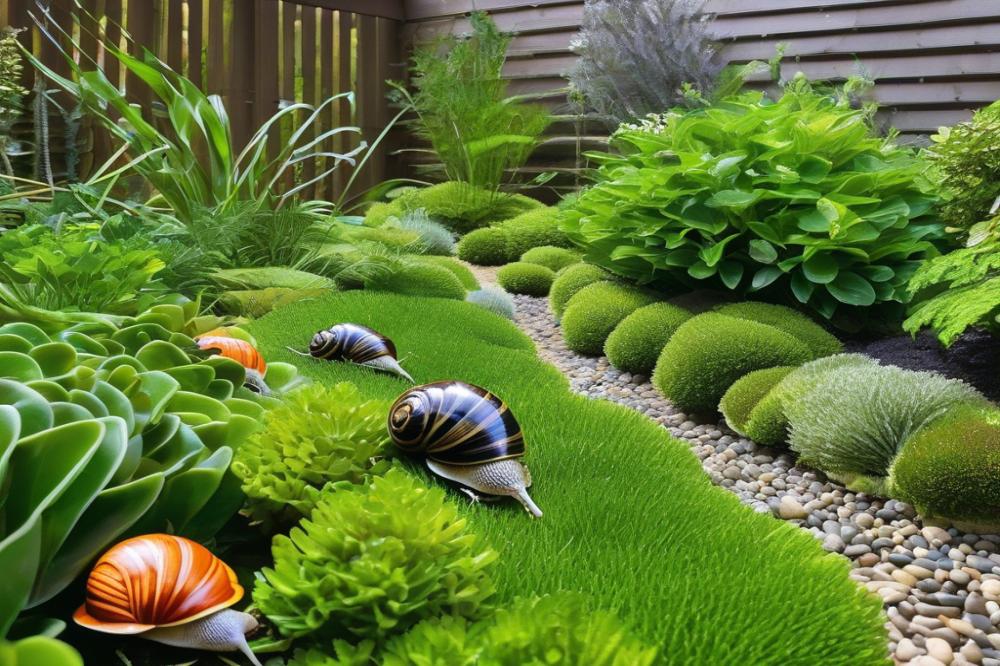

Epsom salt is a compound made up of magnesium and sulfate. This combination provides numerous benefits, especially in gardening. It dissolves easily in water, making it convenient for plant applications. Many gardeners have found various uses for Epsom salt. Its properties help in enriching soil and enhancing plant growth.
How Epsom Salt Works as a Pest Deterrent for Slugs
Slugs are common garden pests that can devastate plants. They tend to prefer moist environments, which makes gardens an ideal habitat. Epsom salt creates a barrier that slugs will typically avoid. When these creatures come into contact with the salt, it can dehydrate them. This dehydration effect makes it an effective pest deterrent. Applying it around the base of plants can help shield them from damage.
Comparison with Other Natural Remedies for Snail Control
Many gardeners seek eco-friendly solutions for pest problems. Epsom salt is one of several natural remedies available. Some options, like diatomaceous earth, work by causing physical harm to pests. Others, such as crushed eggshells, can create a sharp barrier. Each solution has its merits and drawbacks. Epsom salt is often favored for its dual benefits of pest control and plant protection. Comparatively, it’s easy to find and apply. Using multiple methods can enhance overall effectiveness in home gardening.
How to Apply Epsom Salt for Slug Deterrence
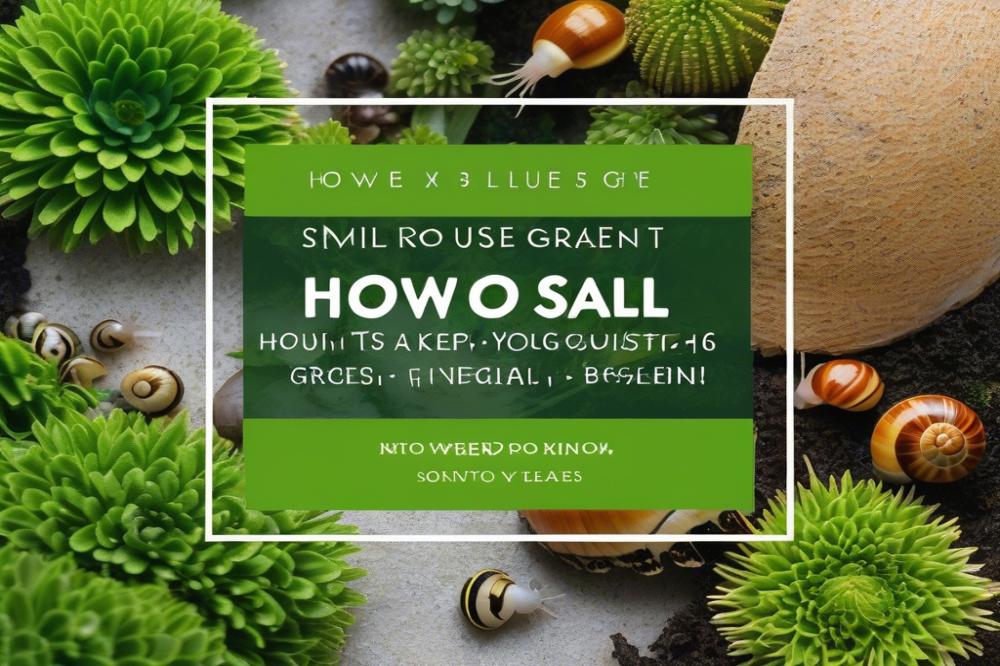

Applying Epsom salt is an effective way to keep garden pests at bay. This natural remedy acts as a pest deterrent for both slugs and snails, providing a safe option for organic gardening enthusiasts. Here are some gardening tips to help you maximize its benefits.
Best Practices for Using Epsom Salt in the Garden
First, select a dry day for application. Moisture can dissolve the salt too quickly, reducing its effectiveness. Sprinkling Epsom salt lightly around the base of plants helps create a barrier. Use about one tablespoon per square foot. Avoid overdoing it, as excessive salt can harm soil health.
Another method involves dissolving Epsom salt in water. Mix approximately 1 tablespoon in a gallon of water. This solution can be sprayed directly onto the foliage of your plants. It helps to fortify plants, making them less appealing to slugs and snails while also providing magnesium. Just make sure to apply it at dusk when pests are most active.
Methods of Application
Creating physical barriers can also be quite effective. Scatter small piles of dry Epsom salt around the areas where slugs enter to create a boundary. These creatures dislike crossing salt, which can help keep them away from vulnerable plants. This idea is particularly useful for protecting seedlings and young plants.
Combining methods can enhance the impact of Epsom salt uses. For instance, sprinkling it on soil around plants while spraying the foliage provides dual protection. It not only repels slugs but also supplies essential nutrients to your plants.
Timing and Frequency of Application
Timing matters significantly in snail control. Apply Epsom salt in the spring, before plants start to grow, and continue as necessary through the growing season. After rain, reapply to restore its barrier effect. Generally, checking the conditions weekly can help you decide when to refresh your application.
Keep in mind that consistency is key for optimal plant protection. Every couple of weeks, assess the slug situation and adjust your methods accordingly. Using Epsom salt helps foster an eco-friendly solution in your home gardening efforts.
Integrating Epsom Salt into Your Home Gardening Routine
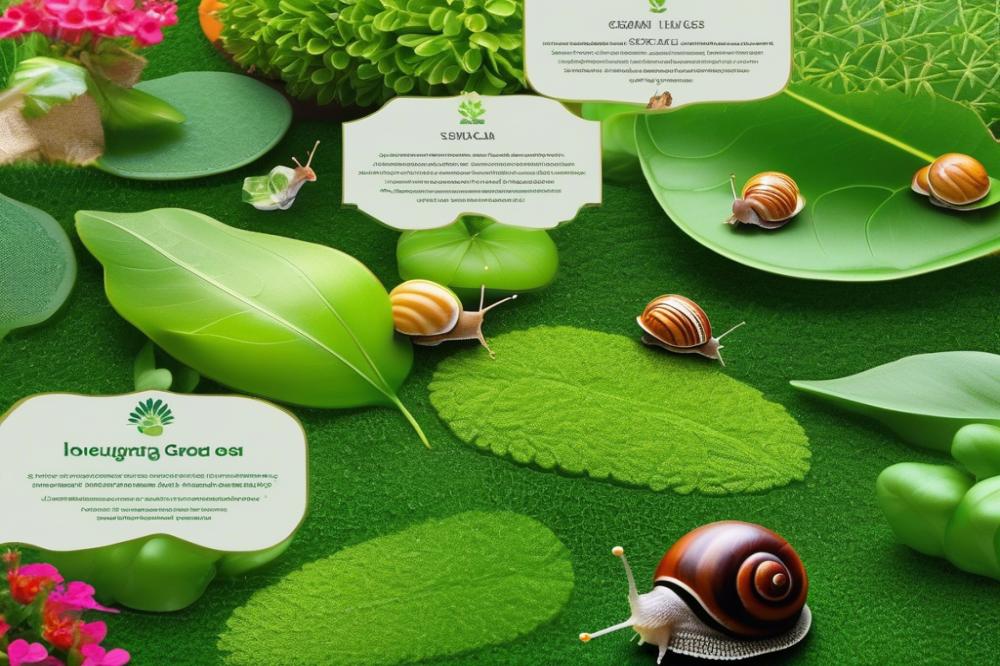

Combining Epsom Salt with Other Organic Gardening Techniques
Epsom salt serves as an excellent addition to your pest management strategy. Many gardeners find that mixing it with other natural remedies enhances its effectiveness. For instance, combining Epsom salt with diatomaceous earth can create a formidable barrier against slugs and snails. Additionally, applying a layer of crushed eggshells around your plants can provide extra protection. These common organic gardening methods work well together, helping to keep those annoying garden pests at bay.
Tips for Monitoring Slug and Snail Activity
Keeping an eye on slug and snail activity is essential for effective pest control. Check your garden in the early morning or late evening when these creatures are most active. Look closely for signs of their trails, which appear as slimy, shiny tracks on leaves and soil. Regular inspections will help you identify problem areas. Using simple traps can also reveal their presence. For example, a shallow dish of beer placed in the garden will attract snails, allowing you to see where they congregate.
Other Eco-Friendly Solutions that Complement Epsom Salt Use
Many eco-friendly solutions exist that can complement the use of Epsom salt for plant protection. For instance, barriers made from copper tape can deter slugs and snails. They receive a mild electric shock when trying to crawl over it. Planting certain herbs like mint or rosemary may also help repel these garden nuisances through their scent. Garlic spray acts as a natural deterrent, too. Harnessing multiple methods increases your odds of successful snail control without harsh chemicals.
Potential Benefits Beyond Slug Control
Using Epsom salt in your garden provides several advantages beyond just keeping slugs and snails at bay. Many gardeners have discovered that Epsom salt can boost plant health significantly. This mineral compound contains magnesium and sulfate, both of which are essential for plant growth. Magnesium aids in the formation of chlorophyll, the substance that helps plants harness sunlight. When plants can photosynthesize effectively, they are healthier and more robust.
Soil quality can also see notable improvements when Epsom salt is applied. By enhancing the nutrient availability in the soil, this simple remedy promotes stronger roots. Healthy roots mean that plants can better absorb water and nutrients. This results in improved resilience against common garden pests. It’s a way to fortify your plant protection without harsh chemicals, making it an excellent choice for organic gardening enthusiasts.
Incorporating Epsom salt into your home gardening routine may boost overall garden resilience against various pests. Snail control becomes easier when plants are thriving and robust. If your plants are strong, garden pests might think twice about attacking them. With stronger plants, the need for chemical pest deterrents decreases. Instead, you can embrace eco-friendly solutions that benefit the environment as well as your garden.
These gardening tips offer a dual benefit: helping to deter slugs while also enriching your soil and plants. Adopting natural remedies like Epsom salt can pave the way for sustainable gardening. As you explore different Epsom salt uses, remember that a healthy garden ecosystem thrives on the balance between plants and their environment. Using this versatile mineral may lead you to a more fruitful and pest-resistant garden.
Final Thoughts on Slug Management
Effectiveness of Epsom Salt
Epsom salt has shown potential in managing slugs and snails effectively. Its unique properties make it an appealing choice for gardeners looking to protect their plants from these garden pests. While it may not eliminate them entirely, many have found that it creates an inhospitable environment for these creatures. This method stands out as a practical option for organic gardening.
Embrace Natural Remedies
Using natural remedies in home gardening can be both beneficial and rewarding. By incorporating Epsom salt into your strategy, you help maintain a healthier ecosystem. It’s possible to cultivate a thriving garden without relying heavily on chemical solutions. This approach not only supports plant health but also respects the surrounding environment.
Sustainable Gardening Practices
Sustainable gardening practices are crucial for the future of our landscapes. Every gardener has the opportunity to make a positive impact on their local environment. By choosing methods like using Epsom salt, you contribute to a balanced ecosystem. The effective management of slugs and snails through natural means emphasizes a commitment to sustainability. Keep exploring ways to nurture your garden while protecting it from unwanted guests.

